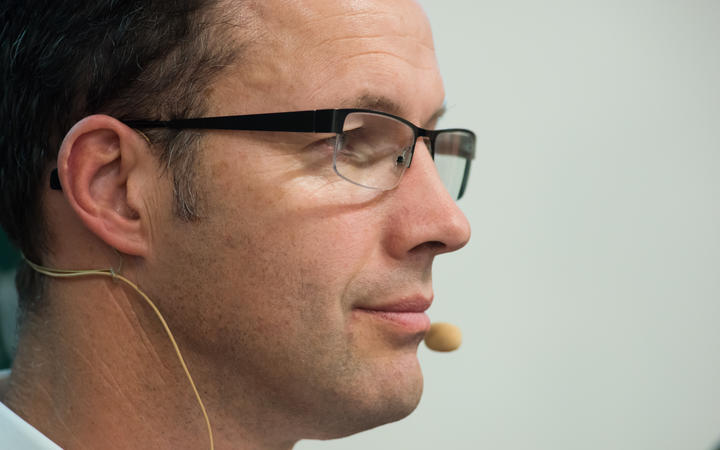
By Katie Todd,
Critics have hammered the Climate Change Commission’s agriculture goals in New Zealand, saying it has missed the mark on methane targets.
In a final 419-page report handed to Parliament yesterday, the commission urged the government to get tough on the way New Zealanders live, move and work, through implementing 33 recommendations.
To help keep global warming below 1.5C it said there should be no more new or used petrol or diesel cars imported, made or assembled in New Zealand by 2035.
- READ MORE: Climate Change Commission releases final report, says nearly all cars imported by 2035 must be electric
- Ināia tonu nei:a low emissions future for Aotearoa – Full report
The commission asked for substantially more government investment in cheap, accessible public transport, cycle paths and walkways, and no more coal boilers “as soon as possible”, with at least 95 percent renewable electricity used by 2030.
Greenpeace head of campaigns Amanda Larsson said it was all a bit disappointing because the report missed a major weak spot.
“Despite thousands of submissions in favour of climate action, despite huge public mandate out there for climate action, the commission has failed to really take responsibility for the industry that is causing the most climate pollution in New Zealand – and that is the dairy industry,” she said.
“There’s been no real change in its recommendations and the dairy industry still gets basically a free pass to pollute.”
Mechanism to reward farmers
The commission wants the government to decide next year on a pricing mechanism for rewarding farmers who reduce emissions.
It suggests technologies including methane inhibitors – vaccines which can reduce the amount of carbon dioxide burped by cows into the atmosphere – could reduce the country’s biogenic methane emissions by more than 50 percent.
It also sets an overall biogenic methane reduction target of 10 percent by 2030 – which Dairy NZ called “incredibly challenging” and a “big ask” for farmers, saying New Zealand milk already had the lowest carbon footprint in the world.
“We do remain concerned agriculture may be asked to do the heavy lifting if we don’t see urgent action to reduce CO2 emissions. We are all in this together and we must have a fair and balanced plan that requires our communities to contribute equally,” its chief executive Dr Tim Mackle said.

However, Larsson said there could have been strict limits on stock numbers, among other measures.
“We need to cut synthetic fertiliser and we need to cut imported feed and we need to support farmers to transition to regenerative and organic ways of farming.”
Hard-line approach in other sectors
Oxfam New Zealand campaign lead Alex Johnston said the commission was already taking more of a hard-line approach for other sectors.
“The pathways for reducing emissions in agriculture are simply not consistent with keeping to 1.5 degrees,” he said.
“Even if we go as hard as we can on transport and other sectors, if we don’t directly regulate emissions from agriculture and step up our actions in that area, then we’re not going to be able to do our fair share to contribute to this global problem.”
Forest & Bird spokesperson Geoff Keey agreed that agriculture was still getting “a bit of an easy ride” and the measures should be stricter, but he believed there was another blind spot in the report.
He wanted kelp and shellfish beds re-established on coastlines, and measures to stop wetlands drying out, to ensure more carbon did not go into the atmosphere.
“One of the big things that comes out of the report is once we start looking beyond 2030 and 2040, we’re going to need to protect our carbon stores in forests, in the sea and in wetlands. Right now the rules are not strong enough to allow that to happen,” he said.
Someone who felt more optimistic about the report was Niwa chief scientist Dr Sam Dean, who called it “a breath of fresh air”.
Traction on policies
He said there was finally traction on a more “comprehensive” range of climate policies.
“Up ’till now we’ve based our response on the emissions trading scheme, which is incentivised plantation and forestry. Moving away from that to a broader range of policies that are going to actually reduce emissions, especially carbon dioxide, is especially important. It’s something we’ve not managed to do, to date. And it’s something we’re going to have to do really quickly,” he said.
Dean said the difficult part was not writing the report – it was up to the government to rise to the challenge.
He said his plea for the government was to embrace all the recommendations with urgency and he challenged all New Zealanders to show their support and willingness to make changes.
This article is republished under a community partnership agreement with RNZ.












































